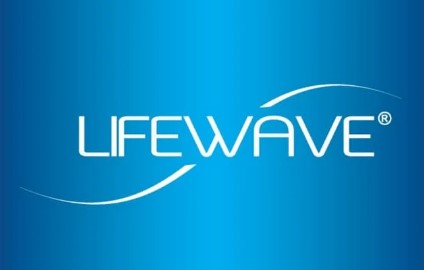Lifewave’s Lawsuit advertising practices

However, the company’s products and marketing practices have not been without controversy. Numerous individuals and organizations have questioned the scientific basis of Lifewave’s lawsuit claims, leading to several legal challenges.
Background of Lifewave
Lifewave was founded in 2004 by David Schmidt. The company claims that its patches, which are worn on the skin, can stimulate the body’s natural healing processes, improve energy levels, and promote overall wellness. The patches supposedly work by reflecting infrared light back into the body, activating certain physiological responses. Lifewave has gained a substantial following, especially among those seeking alternative health solutions.
The Legal Landscape
One of the most prominent lawsuits involving Lifewave was a class-action lawsuit filed in California in 2006. The plaintiffs alleged that Lifewave made false and misleading claims about the efficacy of its patches. They argued that the company’s marketing practices were deceptive, as there was insufficient scientific evidence to support the health benefits claimed by Lifewave.
The lawsuit highlighted the issue of misleading marketing in the wellness industry, where companies often promote products with bold claims that are not backed by rigorous scientific research. In Lifewave’s case, the plaintiffs argued that the company was exploiting consumers’ desire for quick and easy health solutions without providing credible evidence to substantiate its claims.
In 2008, the lawsuit was settled, with Lifewave agreeing to pay a sum to the plaintiffs. The settlement did not require Lifewave to admit any wrongdoing, but it did lead to changes in the company’s marketing practices. Lifewave agreed to modify its advertising to ensure that its claims were more in line with available scientific evidence. However, the settlement did not put an end to the controversy surrounding the company.
Ongoing Controversies
Despite the settlement, Lifewave continued to face scrutiny from regulatory bodies and consumer advocacy groups. The Federal Trade Commission (FTC) has been involved in monitoring Lifewave’s advertising practices, particularly focusing on the claims made about the health benefits of the patches. The FTC has strict guidelines about how health-related products can be marketed, requiring companies to have substantial scientific evidence to back their claims.
In 2011, Lifewave faced another lawsuit, this time involving its claims about weight loss. The company marketed a patch called the “SP6 Complete,” which it claimed could help with appetite control and weight loss by stimulating acupuncture points on the body. However, the plaintiffs in this case argued that there was no scientific basis for these claims and that Lifewave was once again engaging in deceptive marketing practices.
The lawsuit brought to light the broader issue of how companies in the wellness industry often use pseudoscience to promote their products. Many of these companies, including Lifewave, capitalize on the public’s interest in alternative medicine, often blurring the line between legitimate science and speculative claims. This approach can be particularly problematic when it comes to products that make bold health claims without solid evidence to back them up.
Read also: Sunscreen for Face: Essential for Anti-Aging and Skin Health
Implications for the Wellness Industry
The legal challenges faced by Lifewave highlight the need for greater regulation and oversight in the wellness industry. As consumers become more interested in alternative health products, there is a growing need for clear and accurate information about the efficacy and safety of these products. Companies like Lifewave have a responsibility to ensure that their marketing practices are transparent and that their products are backed by credible scientific research.
For consumers, the Lifewave lawsuits serve as a reminder to be cautious when considering alternative health products. It is important to critically evaluate the claims made by companies and to seek out independent research before making a purchase. The wellness industry is vast, and while there are many legitimate products available, there are also many that rely on dubious claims and marketing tactics.
Conclusion
Lifewave’s legal battles underscore the challenges faced by both consumers and regulators in the rapidly growing wellness industry. While the company has made some changes to its marketing practices in response to legal pressure, questions remain about the efficacy of its products and the ethics of its marketing strategies. As the wellness industry continues to evolve, it is essential for companies to prioritize transparency and scientific integrity, ensuring that consumers can make informed decisions about their health. The Lifewave lawsuits serve as a cautionary tale for other companies in the industry, highlighting the potential legal and reputational risks of making unsubstantiated health claims.





